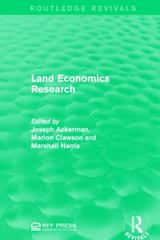Question
Hello. There are a few questions about Basic Economic Concepts that I would like to ask. As I am not in a high level of
Hello. There are a few questions about Basic Economic Concepts that I would like to ask. As I am not in a high level of study, keeping the answers neat, tidy and which addresses the questions would be well-appreciated. Could my answers be more precise, accurate? Please keep my question confidential. Thank you
Is my understanding correct? Are the following statements True or False?
- The study of Economics is related to ''the problem of scarcity''. T/F?
- The problem of scarcity arises because ''there is inadequate resources to satisfy all wants''.T/F?
- In Economics, cost emerges because ''people need to make choices''. T/F?
- Cost will change if ''the highest valued option forgone has changed''. T/F?
5. Define the problem of scarcity. (2 marks)
Scarcity refers to the situation in which the resources available are not enough to satisfy all people's wants.
Alternative answer: Scarcity in Economics refers to the limited availability of resources required to satisfy unlimited wants of the people. Scarcity is the source of all economic problems. With limited resources and unlimited wants, scarcity always exist.
6. What is/are the characteristic(s) of the problem of scarcity? (3 marks)
There are a few characteristics of scarcity. Firstly, people have to make choices. When there is scarcity, people cannot satisfy all their wants with the limited resources available and they have to make decisions on which wants to satisfy and which wants to give up. Choice would involve in opportunity cost, which would not be further discussed in my answer. Secondly, scarcity exists when the resources or goods available are not enough to satisfy all people's wants. People had to compete against each other for the resources or goods. Competition is involved, whether in the from of price competition or non-price competition. Scarcity implies competition. In addition, would also imply discrimination, which would not be further discussed in my answer. Thridly, when scarcity occurs, it means that the limited resources available are not enough to satisfy the wants of people. The above are some characteristics of the problem of scarcity.
7. What is the meaning of cost in economics? When will it change?(3 marks)
Assume that cost in the question is mentioning about opportunity cost.
Opportunity cost is the highest-valued option forgone in making a choice. It will change only when the value of the highest-valued option forgone changes. In an order of preference, if an option not chosen overtakes the original highest-valued option forgone and becomes the highest-valued option forgone. If the value of the highest-valued option forgone changes, opportunity cost will also change.
Situational questions:
Peter's mother has given him $1000 to buy his own birthday present. Peter has the following options arranged in descending order of preference:
1. Mobile game gadget
2. A pair of sports shoes
3. Windbreaker
Q8 Which good is Peter likely to buy? Why? (2 marks)
Mobile game gadget. It is at the first position in the list of the order of preferences. If a person is rational, he will chose the most preferred, highest-valued option. Therefore, Peter is likely to buy a mobile phone gadget in option 1.
Q9 Does Peter have opportunity cost when buying the good? Explain. (3 marks)
Yes, he does. He had to give up the option of buying a pair of sports shoes.Opportunity cost is the highest-valued option forgone. Buying a pair of sport shoes is the highest-valued option forgone. Therefore, the value of buying a pair of sports shoes is the opportunity cost for Peter to buy the good in (Q8).
10. Suppose Peter has bought the Mobile game gadget and discovered that the sound quality is poor, does it affect his cost? Explain.(2 marks)
No, does not. The above situation would only decrease the value of the chosen option (buying mobile game gadget). It would not affect the value of the highest-valued option forgone. The value of the highest-valued option forgone remains unchanged. Therefore, his cost remains unchanged.
11. When will his cost change? Give example to illustrate your answer. (3 marks)
His cost will change only when the value of the highest-valued option forgone changes. For example, when he suddenly finds that he likes the pair of sports shoes a lot due to certain reasons and valued the option of buying a pair of sports shoes higher. Then his cost of choosing option changes because the value of the highest-valued option changes. Another example would be, when he valued the option of buying windbreaker a lot that the order of preference of choosing windbreaker exceeds the 2nd option of choosing a pair of sport shoes. It then becomes the 2nd in the order of preference. Then, there is a change in cost. Opportunity cost is the value of the highest-valued option forgone. In this case, it would be the value of choosing windbreaker but not choosing a pair of sport shoes. Both examples raised would lead to a change in his cost. On the other way round (the value of the highest-valued option forgone decreases or it decreased to a value lower than the next option). This would also lead to a change in his cost.
Thank you very much for your help
Step by Step Solution
There are 3 Steps involved in it
Step: 1

Get Instant Access to Expert-Tailored Solutions
See step-by-step solutions with expert insights and AI powered tools for academic success
Step: 2

Step: 3

Ace Your Homework with AI
Get the answers you need in no time with our AI-driven, step-by-step assistance
Get Started


